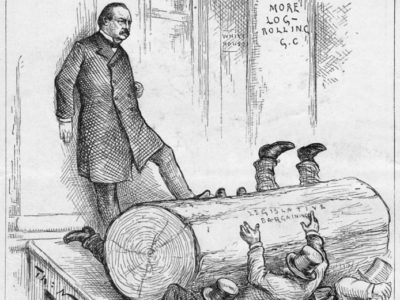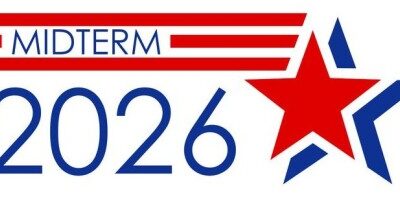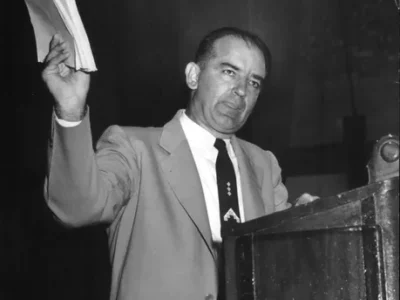One Cheer For “Corruption”
New Public Lands Bill Is A Triumph For The Environment — and an Attack on American Public Philosophy

The Senate on Tuesday passed the most sweeping conservation legislation in a decade, protecting millions of acres of land and hundreds of miles of wild rivers across the country and establishing four new national monuments honoring heroes from Civil War soldiers to a civil rights icon.
The 662-page measure, which passed 92 to 8, represented an old-fashioned approach to dealmaking that has largely disappeared on Capitol Hill. Senators from across the ideological spectrum celebrated home-state gains and congratulated each other for bridging the partisan divide….
The measure protects 1.3 million acres as wilderness, the nation’s most stringent protection that prohibits even roads and motorized vehicles. It permanently withdraws more than 370,000 acres of land from mining around two national parks, including Yellowstone, and permanently authorizes a program to spend offshore drilling revenue on conservation efforts.
That’s great. I am particularly pleased about the permanent reauthorization of the Land and Water Conservation Fund, which the Right has consistently attacked, but has strong support from locals. Which brings me to the philosophical point:
The package is crammed full of provisions for nearly every senator who cast a vote Tuesday. Sen. Martin Heinrich (D-N.M.) lauded the fact that it will create 273,000 acres of wilderness in his state, most of it within the boundaries of two national monuments that Trump threatened to shrink. Senate Energy and Natural Resources Committee Chairwoman Lisa Murkowski (R-Alaska), who co-authored it, inserted a provision that allows native Alaskans who served in Vietnam to apply for a land allotment in their home state.
If you asked most Americans about such deals, they would be horrified. It’s corruption!
I’m not exaggerating. This sort of logrolling is literally illegal in many states. Wisconsin imposes a fine of up to $1,000 and prison from one two for four years for any member of the Legislature who:
who gives, offers or promises to give his or her vote or influence infavor of or against any measure or proposition pending or proposed to be introduced in the legislature in consideration or upon condition that any other person elected to the same legislature will give or will promise or agree to give his or her vote or influence in favor or against any other measure or proposition pending or proposed to be introduced in such legislature.
Wis. STAT. § 13.05 (1999). California has a similar statute. Several years ago, the Republican Congress also banned earmarks, seeing them as corrupt buyoffs. It got so bad that when the GOP members met with Justice Scalia, they asked him if earmarks were constitutional. The puzzled Scalia answered, quite appropriately, that it was just the opposite: spending money on projects is exactly the core of the legislative power. (Put aside the questionable propriety of the meeting.).
Why would Americans and their lawmakers think this? Trading of interests is the very stuff of legislation. The problem is that the public doesn’t understand legislation. As John R. Hibbing and Elizabeth Theiss-Morse noted in their terrific book, Stealth Democracy: Americans’ Beliefs About How Government Should Work (2002):
People believe that Americans all have the same basic goals, and they are consequently turned off by political debate and deal making that presuppose an absence of consensus. People believe these activities would be unnecessary if decision makers were in tune with the (consensual) public interest rather than cacophonous special interests.
The problem with the popular belief is that it is flat wrong. I am not so cynical as to believe that there is no such thing as the public interest, but there are a lot of special interests out there, whose needs should be served, especially if it means that others get things, too. Native Alaskan Vietnam Vets are certainly a special interest — and that is okay. There are lots of, in Hibbing’s and Theiss-Morse’s words “cacophonous special interests” in a country of 300 million people. People often disagree. Indeed, one could argue that Congress has been more splintered over the years precisely because House leadership has been unable to buy off recalcitrant members with earmarks: this supposed “good government” rule helped create the House “Freedom” Caucus.
Horse-trading and log-rolling is not a sign of corruption: it is for the most part a positive good, and should be celebrated by all Americans. Their public lands are in no small part the result of it.
Reader Comments
One Reply to “One Cheer For “Corruption””
Comments are closed.






Wow! Excellent, eye-opening article.